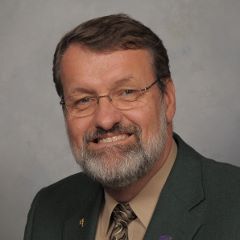September 13, 2016
Networking and Connecting with Your Public

It has been some time since I have quoted the Kansas State Agricultural College Extension Bulletin No. 33, dated February, 1922, and entitled "The Extension Workers Code" by T.J. Talbert. I cite a couple sections that I believe have significance with respect to contemporary core competencies for extension professionals.
Make Friends of Folks, Especially Leaders
It is important to make friends of all the people, especially of those who assume leadership in the community, town, county, and state. It is well not to be too forward but at the same time it is a great mistake to be too backward. Strike the happy medium if possible but go out of your way to become acquainted with the best farmers, bankers, editors, merchants, doctors, lawyers, and other prominent citizens.
Have a Smile for Everybody
It is of utmost importance that the extension worker be able to meet people in a way which will be conducive to further acquaintance and association. Wear your best smile all the time and give everyone as much attention as if you were a candidate for some political office.
The ability to get along with people, make friends, and secure their assistance in your work generally counts for 75 per cent or more toward success. Practically every person entering the extension service has enough technical knowledge to succeed, but many are not as successful as they should be in securing support from their co-workers or from the public.
Talbert's wisdom in 1922 holds true for today. Success of an Extension worker comes through networking and gaining the assistance of others. It begins by making a connection or friendship with those key leaders and potential partners. Being a loner is far less productive than to exist within a network. And, it isn't about personal aggrandizement or trying to gain personal recognition and reward. A dimension of scholarship in extension/outreach work carries with it an ability to expand one's circle of influence.
A core competency for successful extension work comes through one's ability to successfully interact with diverse individuals and groups to create partnerships, networks, and dynamic human systems. We call it "interpersonal skills."